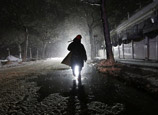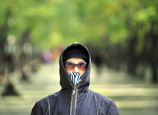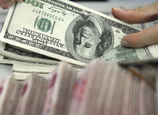
The city of Shenzhen, Guangdong Province, plans to issue a new regulation on emergency response to establish a better information disclosure system and news release system. According to the regulation, emergency management will follow the principle of executive accountability.
Officials who have main responsibility for emergencies should disclose brief information within two hours and make the response plan known to the public within 24 hours. Those who delay or conceal information, or give false reports, will be held accountable.
These are four categories of emergencies: natural disasters, accidents, public health incidents and social security incidents. Some of them may threaten lives and others may affect property and daily life. Giving timely information helps people avoid risk. Even citizens not directly affected by disaster have the rights to know because according to Article 2 of the Constitution, "The people administer state affairs and manage economic, cultural and social affairs through various channels and in various ways."
In many cases, governments are forced to refute rumors instead of disclosing information on their own initiative. They have even refused to disclose some information in the name of avoiding negative impact on social stability. Sometimes governments only disclose information favorable to them but conceal damaging information to maintain their image.
In these cases, the governments' credibility is at stake. That's why increasing doubts have been raised about governments and experts in recent years.
People can only trust governments if they know the truth. With the spread of the Internet, hiding the truth can only bring momentary stability. Governments face more doubts and condemnation if their lies are exposed.
Avoiding causing panic or maintaining stability should no longer be an excuse for governments to refuse to disclose information in emergencies. The public has a strong sense of participating in government, and they cannot be pushed to the side just because of the excuse of avoiding panic.
The demand for real information in times of emergency cannot be suppressed or reversed. The question is how to carry it out in a feasible way. In this sense, Shenzhen is taking a meaningful step.

















![]()
